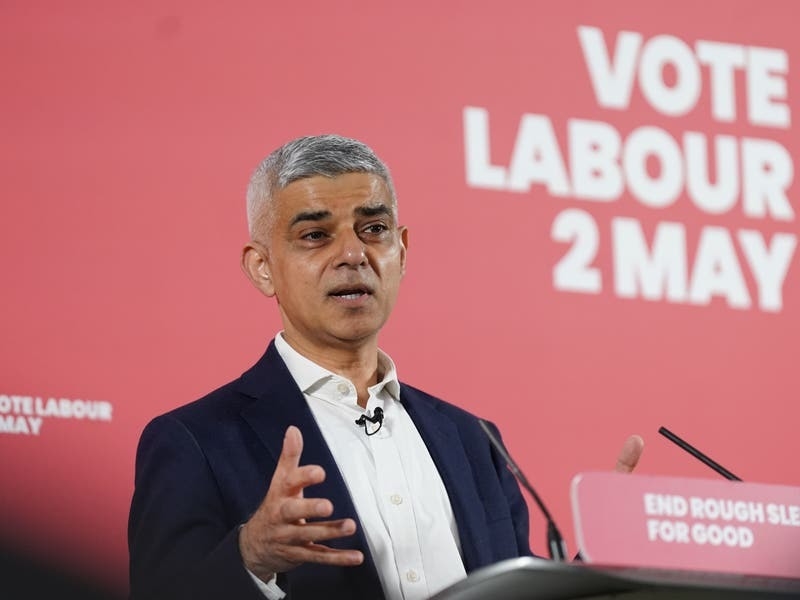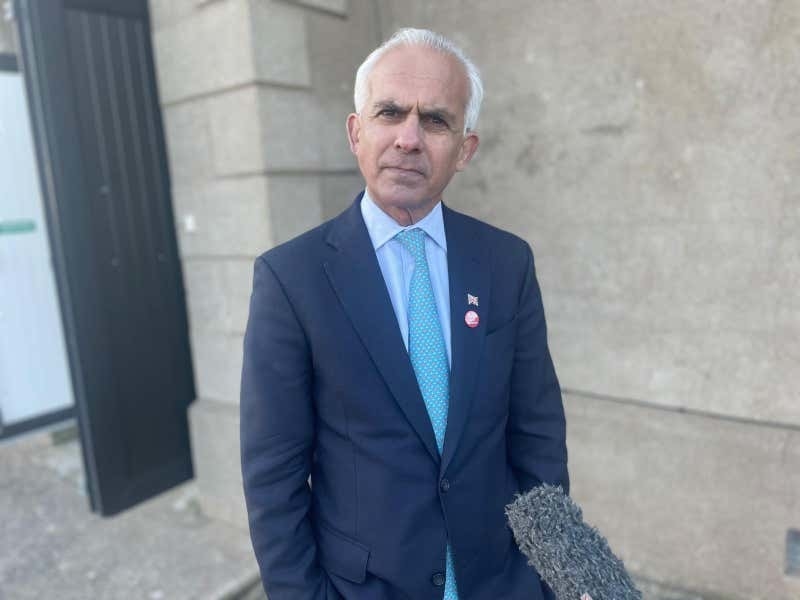The Prime Minister’s deal on the Northern Ireland Protocol has shown that Britain’s “botched” Brexit pact can be improved upon, according to the shadow chancellor.
Rachel Reeves said a future Labour government would not “want to stop” at only improving trade prospects with Northern Ireland but also wanted to create a more booming export market for British businesses to sell into the European Union.
The Labour Party has consistently said it would not entertain rejoining the single market or the customs union if it secured power after the next general election, a poll that could be little more than a year away.
Ms Reeves told the MakeUK conference in Westminster, London, on Tuesday that reviving the UK’s economy would mean “repairing the damage from our botched Brexit deal” by instigating “practical reforms”.
She said there needed to be a “closer relationship” with European neighbours in order to “help grow our economy”.
“Our current deal has left British exporters tied up in red tape, so we will fix the holes in that deal so that Great British businesses, big and small, can export so that we can boost inward investment into the UK.”

“We’ve already seen with the changes to the Northern Ireland Protocol that it is possible to make changes to our relationship with the European Union, changes that will make it easier for British business to trade freely,” she said.
“We don’t want to stop at Northern Ireland though.
“We want to make it easier for British businesses to trade with countries across the European Union.
“And so we would work with our neighbours and allies to make practical changes.
“Not going back into the single market or customs union, but changes need to be made at pace to improve exports and get investment back into Britain, like a veterinary deal, mutual recognition of professional qualifications and helping our cultural industries to tour, as well as participation in Horizon.

The Windsor Framework was the result of cross-Channel negotiations to improve the protocol, which was part of former prime minister Boris Johnson’s Brexit deal and designed to prevent a hard border in Ireland by allowing some EU rules to continue to apply to Northern Ireland.
It saw the UK and EU agree to reforms aimed at reducing the amount of checks needed on GB/NI trade, while giving Belfast a stronger say on the Brussels rules that it will have to follow in the future.
The Windsor Framework is currently being considered by the Democratic Unionist Party (DUP), as No 10 waits to discover whether it is enough for the party to rejoin a powersharing agreement in Stormont with Sinn Fein.
In a policy that had been briefed beforehand, Ms Reeves announced during her speech that a future Labour administration would carry out a review of the British tax system.
Labour said it wants, under a Sir Keir Starmer premiership, to map out tax changes over a set period in a bid to provide businesses with a more stable environment for investment.
Mr Hunt has faced lobbying from senior Conservatives to scrap the planned rate hike, which will see the corporate business tax put up from 19% to 25%.
Ms Reeves said that, even with the change, the UK would still have “the lowest corporation tax in the G7”.
She added: “I would resist, if I was the Chancellor, the siren calls from some in his party to cut corporation tax.”
The former Bank of England economist said that, should there be “money available” in the Budget for businesses, then it should be used to create long-term “support and incentives for investment”.
“Not just for one year or two years… because investment decisions are not things you can switch on and off while the Government moves business taxation up and down like a yo-yo,” she added.
“We want to provide that stability as well as those incentives to encourage investment.”






